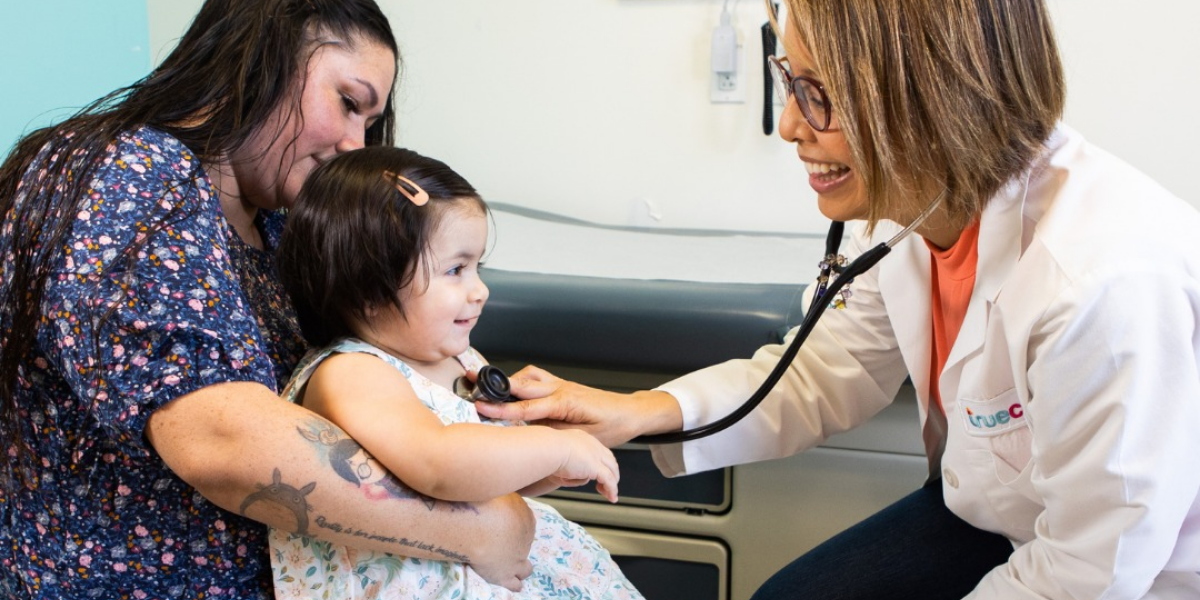According to the Workforce, Childcare & Change report, 77% of parents say that finding childcare in the San Diego region is a challenge. This, combined with the high cost of care, is forcing many working parents to disengage from the workforce. Employers can be a part of the solution when it comes to innovative, equitable childcare for working families.
The U.S. Chamber of Commerce Foundation’s (U.S. Chamber Foundation) briefing, Essential Care for Essential Workers, lists unique support services that employers can implement to support their staff, such as subsidies, backup care, childcare vouchers and flexible scheduling.
Some local employers are already addressing childcare quality, access and affordability. Local nonprofit SAY San Diego offers on-site childcare services for staff and the community, while YMCA of San Diego County’s employer-supported childcare solutions program partners with employers to nurture the needs of working parents by supporting them with innovative childcare solutions.
In addition to local nonprofits, companies like Bank of America and Dr. Bronner’s are stepping up and offering competitive benefits for working families to address the childcare crisis.
Bank of America: Support for New Parents & Backup Childcare
In Essential Care for Essential Workers, the U.S. Chamber Foundation outlines three tiers for employer-supported childcare:
- “Quick wins”, which could be working-parent support and flexible scheduling
- “Internal investments”, including childcare vouchers, subsidies, and on-site care
- “Community investments”, like public advocacy and expanding community capacity and childcare supply
Backup care, designed to help employees in an emergency when childcare plans fall through, is considered an internal investment in childcare and support for working families.
Bank of America offers 50 days of backup care for both children and adults, which is particularly helpful for employees that are taking care of elderly parents or adult children with disabilities.
This holistic approach to backup care recognizes the many intergenerational needs of working families, and addresses the needs of employees who work in person (at a branch, for example) and don’t have the option to work from home.
“I love that the bank is inclusive to support all different types of working families – with young children, with aging parents, with dependent adult children with special needs,” emphasized Jennifer Gallagher, Senior Vice President, Market Executive for Middle Market at Bank of America.
During the pandemic, Bank of America offered its employees up to $100 per day for child- and adult-care needs. Jennifer added that since the start of the pandemic, employees have used more than 4.5 million days of adult and childcare services, which underscores the high need.
With the transition back to in-person work, Bank of America is actively finding new ways to implement, adapt and change to better support flexible adult and childcare for employees. Currently, employees may receive up to $275 per month per child for eligible expenses. They also offer flexibility as to who qualifies as a childcare provider, so relatives, neighbors and various community programs qualify.
Support for working parents, and the full menu of benefits that Bank of America offers is something Jennifer is personally familiar with, as she just welcomed her first baby.
“The Bank encouraged me to take the full 16 weeks of parental leave when my child was born so I could set an example for other employees,” Jennifer shared. “This same leave is also offered for working dads, and employees have the flexibility to take this leave anytime during their baby’s first year.”
Dr. Bronner’s: Childcare Benefits, Subsidies & Referrals
Local soap company Dr. Bronner’s surveys their employees annually. In 2016, it became apparent that childcare was a major financial burden and cause of stress for families.
Dr. Bronner’s decided to invest internally in its employees by covering half the cost of approved childcare venues. Originally a $5,000 benefit, the company increased the match up to $7,500 a year after receiving additional employee feedback during the pandemic. Benefits include daycare, preschool, after-school care and summer care, up to age 11.
The company knows that childcare is a necessity for working parents, and believes that employers can be compassionate and understanding in meeting those needs.
The benefit is working well for Dr. Bronner’s and its staff. Employees come to work with peace of mind knowing that their children are being cared for in a safe, high-quality childcare environment.
The company also partnered with Tootris, an on-demand childcare agency, to help parents find the right placements for their children. Having the support of referrals to open childcare providers has been invaluable.
As a working mom, Lilia Vergara, Director of Human Resources at Dr. Bronner’s, remembers the struggle of going to school, working and taking care of her eldest daughter when she was young. She underscored the fact that childcare is expensive, and encourages employers to be proactive.
“If you don’t pay for this benefit, you will see the costs somewhere else,” she added, citing absenteeism and turnover as ways that companies are impacted by a lack of supportive childcare services.
Workforce, Childcare & Change
Ensuring equitable access to quality, affordable childcare aligns with The San Diego Foundation Strategic Plan priority to foster equity of opportunity, which includes increasing access to quality early care and education.
To learn more about what can be done to address the childcare crisis in our region, view our recent webinar and learn from local and national experts about the connection between childcare and workforce engagement, recent polling data focused on the needs of working parents, and benefits that support working parents and the connection to workplace retention and attraction.




